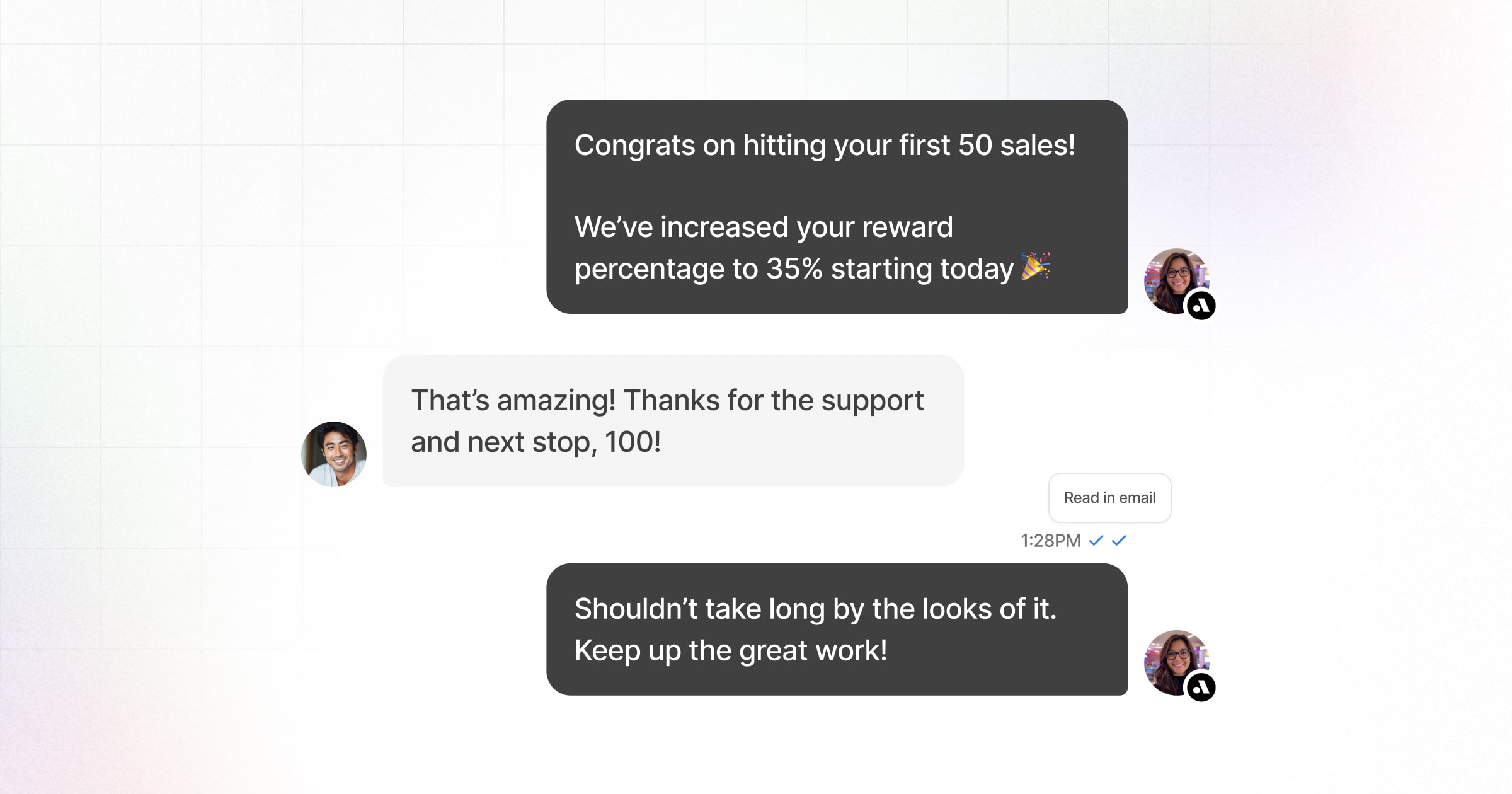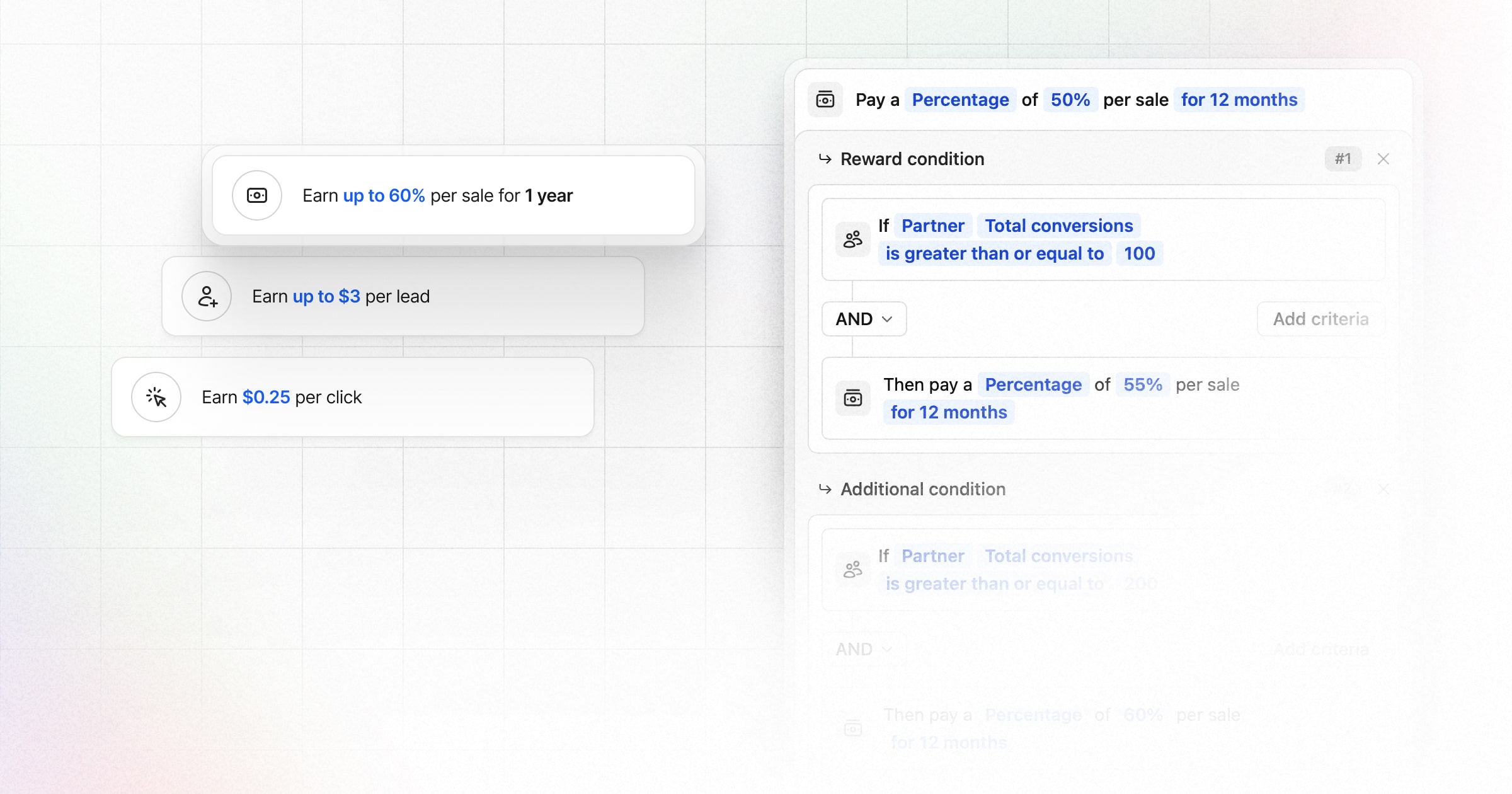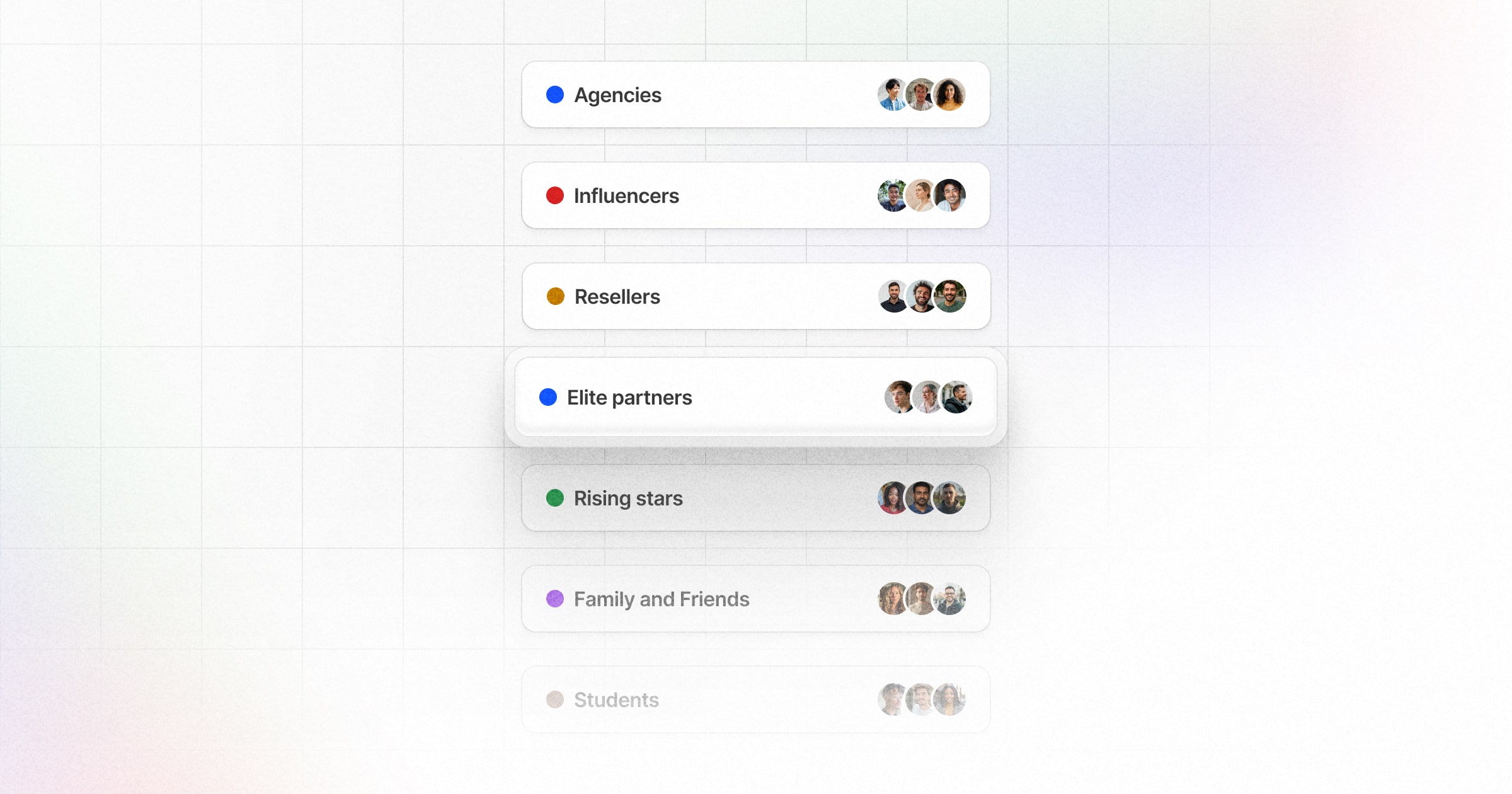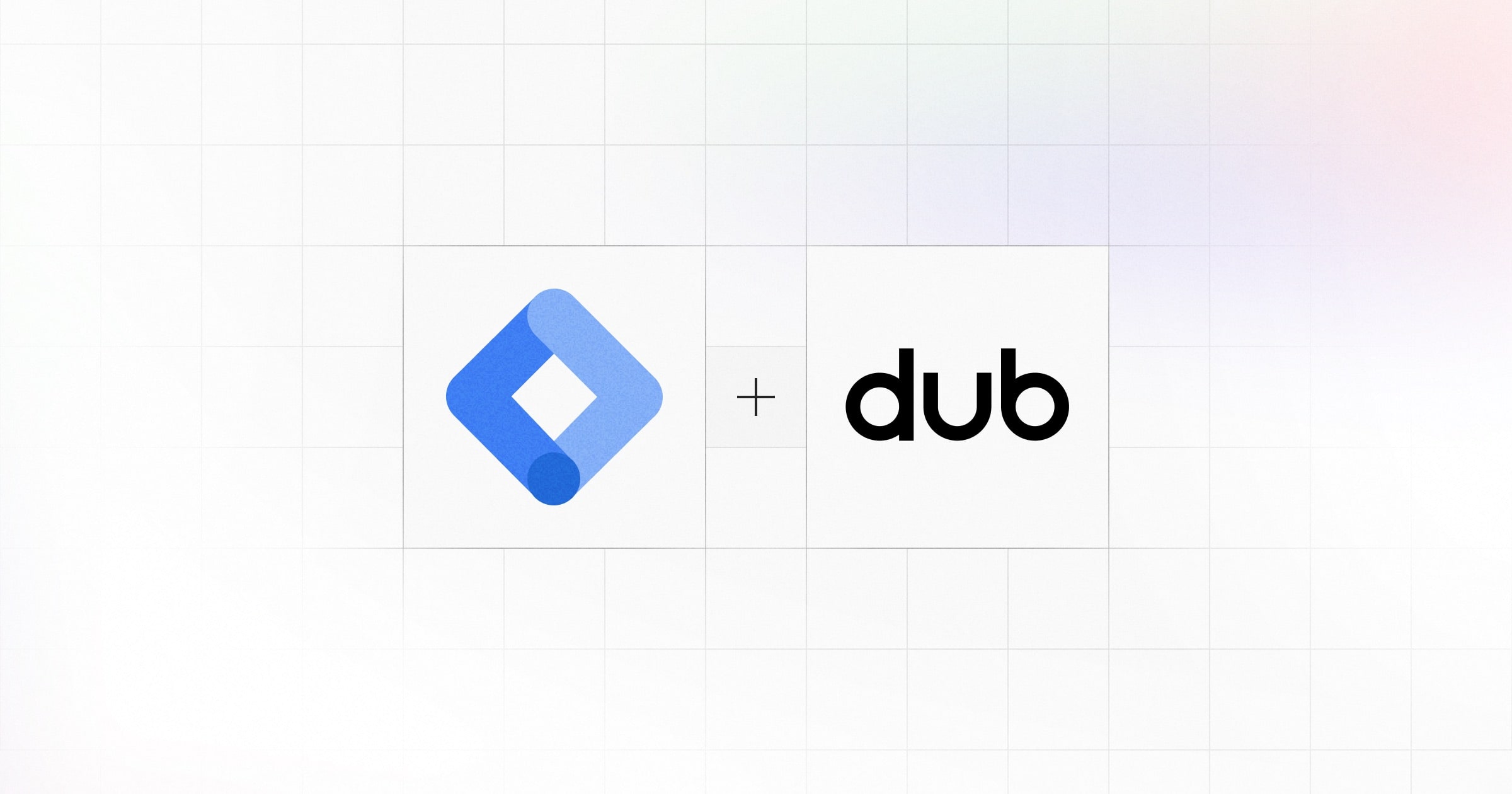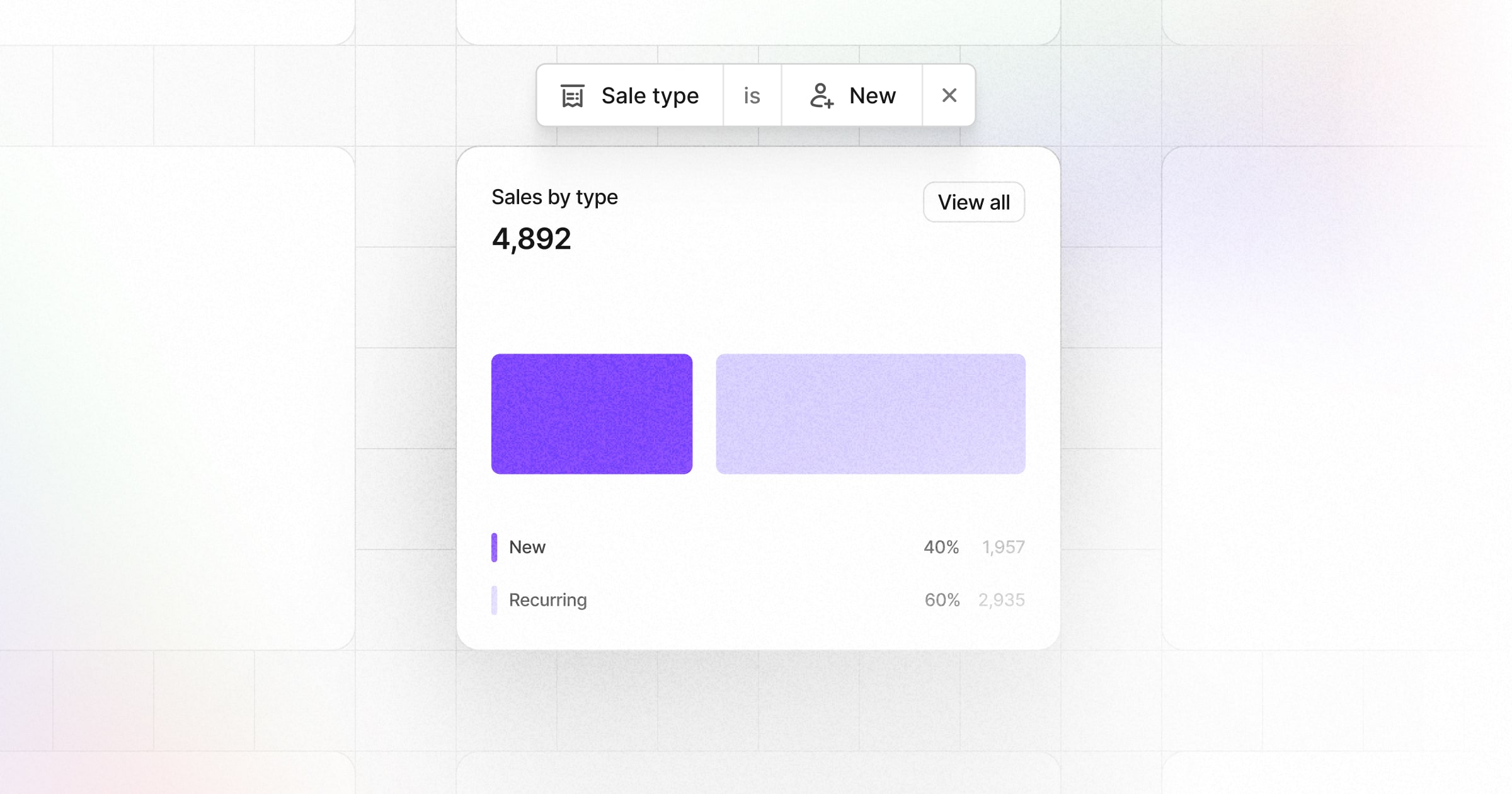You can now use our new Messaging Center to communicate with partners in your Dub partner program. Partners get notified via email and can respond to your messages in real-time.
This is useful for discussing any program-related inquiries or for negotiating partner rewards.
Bonus: We also show a "read status" indicator on each message – either when the partner opens the message via email, or views the message in the app.
Learn more about messaging your partners on Dub.
